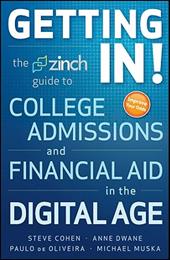It’s hard. I know. I’ve been there. You want your kids to have the BEST education available. You want them to want it as much as you do. You see them making some choices that you know they will regret. As hard as you try, you find yourself pressuring them to make the right choice and the battle lines are drawn. They dig their heels in. You dig your heels in. And the tug of war begins.
What’s a parent to do when they feel their college-bound teens are making the wrong choices related to college? Take a deep breath and read these examples (along with my suggestions)–
Your college-bound teen tells you he doesn’t want to go to the college that is hard to get into and is opting for what you consider to be sub par.
Don’t panic or overreact. It’s possible he is scared. Try and ascertain the reasoning behind the decision. Don’t do this by badgering him or constantly asking him why. The best way to figure out what is wrong is to LISTEN. Listen to him talk about his day, about college, about how he feels. If fear is not the reason, perhaps he feels the other college would be a better fit. If that’s the case, do yourself a favor and back off. The worst thing you can do with a teenager is force him into a decision he feels is wrong. Sometimes the best lessons we learn are the ones that come from making our own decisions (right or wrong).
Your college-bound teen tells you that he simply MUST go to Private College A, even though she knows it comes with a high price tag.
Don’t let her bully you into sending her to a college you can’t afford AND one that will require a tremendous amount of student loan debt. Sit her down and explain to her the dangers of graduating in debt. Use the college repayment calculators if you have to. If she truly wants to go to Private College A, she needs to do the work (good grades, good SAT/ACT scores, great essay) to be awarded scholarship/grant money from that college. If not, there are always other options and choices.
Your college-bound teen is not interested in college, deadlines, studying for the SAT or any other path that leads him toward higher education.
If there is one thing I learned with both of my kids (and clients), if they aren’t invested in the college process they won’t be invested in college. Save yourself some time, money and heartache and wait until they are. If not, they can learn from the college of hard knocks–minimum wage jobs are the BEST motivator!
Your college-bound teen misses deadlines, panics and comes running to you at the last minute to fix it.
The simplest way I know to avoid missing deadlines, is to get yourself a huge wall calendar and a fat red marker. Put it in a place that they have to pass by every single day. In addition, with all the smartphones and calendar apps available today, missing a deadline should be a thing of the past. At some point (hopefully when they go to college), they will have to fix their own problems. Let them do it now, while they live at home, and it will be easier for them once they are gone. Rescuing your kids all time only makes them into dependent adults and colleges aren’t impressed with those type of students or the parents that come with them.
Your college-bound teen suddenly announces she is not ready for college and wants to take a year off.
First of all, wait. Don’t react. Just listen. Odds are the mood will change with the wind and once all her friends are making college plans, that desire that she once had will kick back in. If not, let her know that it won’t be a “free-ride” year. She will be expected to work and save the money she makes for college.
If you have any questions or personal experiences you would like to share, please leave a comment here and share it with other parents. We learn from each other and from our mistakes and successes!
Disclaimer: These are my “suggestions”. I don’t claim to be a parenting expert, just a parent who has faced these same problems and learned from them. Take my wisdom as you will and realize that every family dynamic is different.
 I’ve been blogging about this laptop for about a week now in the hopes that you can make an informed choice about the right laptop for your student.
I’ve been blogging about this laptop for about a week now in the hopes that you can make an informed choice about the right laptop for your student.








